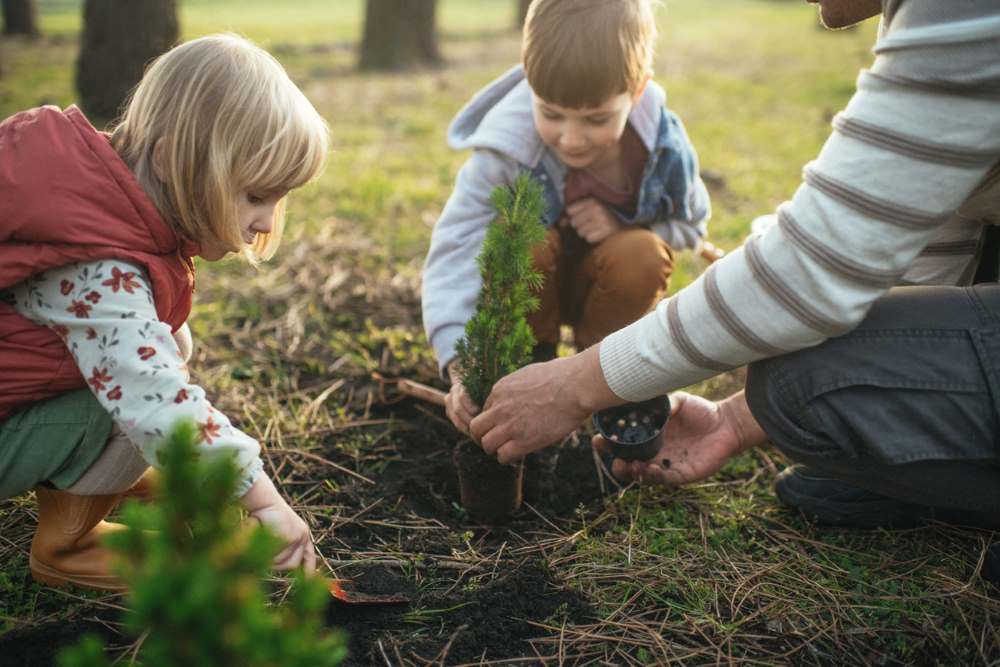
The state of our planet presents a significant challenge for current and future generations. Climate change, habitat loss, and dwindling resources necessitate immediate action and a shift toward sustainable practices. While the task might seem daunting, there's a growing hope – the enthusiastic voices of children advocating for conservation. This article explores the crucial role kids can play in leading the environmental charge and how parents can empower them to become responsible stewards of the planet.
Why Kids Make a Difference in Conservation Efforts
Children bring a unique and valuable perspective to the conservation movement. Their unbridled enthusiasm for the environment can inspire adults and reignite a sense of responsibility for the planet. Untainted by ingrained habits, kids can offer fresh ideas and question the status quo, potentially sparking creative solutions to environmental challenges.
Furthermore, their genuine concern for the environment can influence the behavior of adults around them, leading to more sustainable practices at home and within communities, making them powerful agents of change. With their inherent curiosity, sense of wonder, and willingness to help, children are not simply the future inheritors of our planet; they are active participants in shaping a more sustainable tomorrow.
Fostering a Green Mindset: How Parents Can Empower Their Kids
Nurturing a green mindset in your children starts with leading by example. As parents, we are our children's biggest role models, and our everyday choices have a significant influence. By consciously reducing household waste, conserving energy at home, making sustainable choices when shopping, or choosing eco-friendly transportation, we set a powerful example that teaches valuable lessons about environmental responsibility.
Open communication is also crucial. Encourage your children to ask questions about environmental challenges and solutions. Discuss complex issues in an age-appropriate manner, fostering understanding and empowering them to contribute to a more sustainable future, even if their actions seem small.
Building a Sustainable Future: Activities and Initiatives for Kids
There are numerous ways for kids to get directly involved in conservation efforts. By participating in engaging activities and initiatives, children can develop a sense of agency and contribute to a more sustainable future:
-
Learning Through Play: Environmental education doesn't always have to be formal. Incorporate conservation themes into playtime through creative activities. Plant a mini-garden with native wildflowers together, build bird feeders from recycled materials, or create a compost bin and discuss the importance of reducing waste.
-
Citizen Science Projects: The internet offers a wealth of opportunities for citizen science projects that allow kids to participate in real-world data collection. These projects can range from monitoring local bird populations and tracking water quality to collecting data on plant growth and weather patterns.
-
Volunteer Activities: There are many age-appropriate volunteer opportunities that allow families to work together towards a common goal. Participate in beach cleanups to remove plastic debris, plant trees during community reforestation initiatives, or volunteer at a local community garden, learning about sustainable food production practices.
Animal Conservation Efforts for Kids
The animal kingdom faces a multitude of challenges, from habitat loss and climate change to poaching and the illegal wildlife trade. Fortunately, dedicated efforts are underway to protect endangered species and preserve biodiversity. Here's how you can introduce your kids to the fascinating world of animal conservation and inspire them to become champions for wildlife.
Start by sparking their curiosity with animals' incredible adaptations to survive in their specific environments. Explore the unique camouflage patterns of leopards, the echolocation abilities of bats, or the awe-inspiring migrations of whales. Discussing these adaptations can naturally lead to conversations about the importance of protecting these animals' homes.
Next, choose a specific endangered animal and delve deeper into its story. Research its habitat, the threats it faces, and ongoing conservation efforts. Many organizations offer educational resources and interactive activities specifically designed for kids, making learning about endangered species engaging and informative. Consider planning a visit to a local wildlife rehabilitation center. Witnessing firsthand the vital work these facilities perform in caring for injured or orphaned animals with the goal of releasing them back into the wild can leave a lasting impression on children and inspire them to support conservation efforts.
Inspiring Advocacy and Long-Term Commitment
Empowering children goes beyond participation in activities; it's about fostering a sense of ownership and responsibility for the future of the planet. Here's how to encourage kids to become vocal advocates for conservation:
Raising Awareness
Encourage kids to raise awareness about environmental issues within their communities. This could involve creating posters or artwork with environmental messages, writing letters to local officials expressing their concerns, or even organizing small fundraising events to support conservation organizations.
Building a Green Mindset for the Future
Help children develop a long-term perspective on environmental issues. Discuss the consequences of inaction and the positive impact of collective action on the future of the planet. Encourage them to think critically about their own long-term goals and how they can integrate sustainable practices into their future careers and personal lives.
A Brighter Tomorrow
The future of our planet hinges on a collective effort, and children hold a significant role in this critical endeavor. By fostering a love for nature, empowering them with knowledge and opportunities for action, and nurturing a sense of environmental responsibility, parents can empower the next generation to become leaders in conservation. Through the combined voices and actions of children and adults, we can work towards a brighter tomorrow, ensuring a sustainable and healthy planet for generations to come. Remember, every small action contributes to a larger impact, and every child's voice has the power to make a difference. Let's join hands with our children, celebrate their passion for the environment, and work together to create a future where humans and nature can thrive in harmony.



























